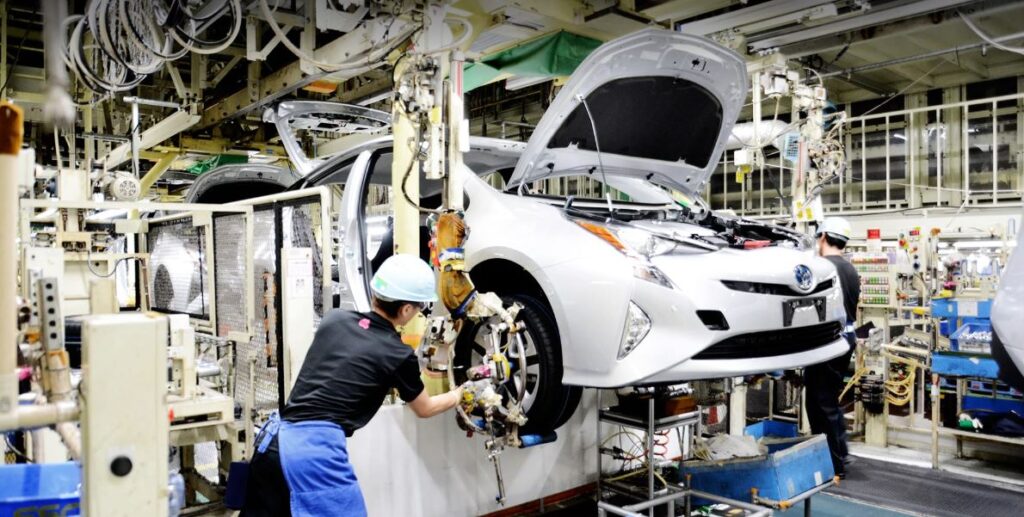China draws a ‘line in the sand’ in warning to Japan that Beijing will retaliate seriously to new restrictions on the export of chips to Chinese firms from Japan. This development poses a challenge to the ongoing attempt by the US and its allies to put constraints to China’s acquisition of innovative technologies.
Bloomberg and Reuters have noted, top leaders in the Chinese government have clearly articulated their stance during their most recent diplomatic interactions with the Japanese side. These limitations could greatly affect the supply chain of semiconductors on the global marketplace; Japan is one of the leaders that take part in it.
Toyota and Japan Concerned About China’s Response

It is pertinent to mention here that Beijing has warned Japan that any other restrictions regarding chip-related exports from their country will not be taken lightly by Beijing. China might aim at the car industry in Japan, which relies much on minerals supplied by China as well as the technology sector. This comes at a time when Japan has gradually begun to limit exports of 23 types of semiconductor manufacturing equipment in line with a drive by the U. S and its allies to slow down China’s advancements in semiconductors.
Toyota Motor Corp. and other large-scale Japanese firms are becoming more concerned about possible Chinese reciprocity concerning Japan’s proposed ban on the export of semiconductors. Toyota, for instance, fears that Beijing may decide to shut off its access to minerals that are imperative in auto manufacturing and high-tech items such as gallium and germanium. This disruption could potentially cause a great shift in the Japanese economy and its main supporting industries such as automotive vehicles and electronics industries. Concerns regarding such restrictions have already been negatively affecting share prices, such as the Tokyo Electron Ltd., signaling further concerns among industrial businesses of Japan.
China May Cut Japan’s Mineral Supplies
The case of China denying Japan the supply of essential minerals may have serious implications on its economy. Automotive and electronics industries of Japan particularly have a high demand for these materials. Any attempt to curb these exports would recall the scenario of 2010 when China threatened to cut down the exportation of rare earth minerals to Japan which had a severe impact.
Impact of China-Japan Tensions on Global Chip Trade

The conflict between China and Japan in the semiconductor industry reflects similar attempts by the USA to contain the growth of the Chinese technology sector. The US has been applying pressure on its allies such as Japan to implement even tighter restrictions on the sale of chip making equipment and materials to China. This geopolitical tension demonstrates new splitting in leading world powers in terms of technology and commerce.
The renewed conflict between China and Japan could have impact on the global availability of semiconductors and consequently the electronics industry. The companies related to chips in Japan like Tokyo Electron have already begun to witness a fall in their share prices after rumors of Chinese retribution lingered around. Possible misunderstandings can cause more fluctuations in the global market of technologies.
In this case, the recent tension between China and Japan over the restrictions of semiconductor exports depicts the vulnerability of worldwide trade relations. While both countries try to deal with this issue it becomes evident that long-term prospects of the future world trade and technology industries are rather vague. The global semiconductor market will be keenly observing how this conflict evolves which is quite important to the world.






